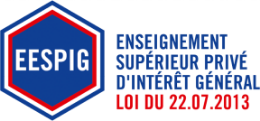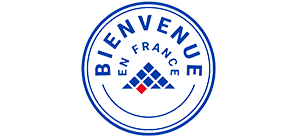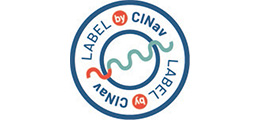Railway and Guided-transport Engineer
High-speed trains, trams, automatic subway trains – there is constant innovation in the field of guided transport and French know-how is exported throughout the world. Manufacturers and carriers are looking for engineers to develop new vehicles, equipment or services, to shape innovations, monitor manufacturing and maintenance, analyse the feasibility of international contracts, etc. ESTACA is one of the only schools in France offering training specifically dedicated to guided transport.
Specialised training and privileged contact with companies
more than 400 hours of courses are provided by engineers from Alstom, SNCF, RATP, Siemens Transportation Systems, etc.
at least 4 implementation projects are performed during the curriculum, for example:
- preliminary project on the architecture for a system of guided transport;
- development of railway braking systems adapted to high-speed;
- dimensioning of a traction unit
12 months of obligatory work-experience courses, for example:
- Discovering the company course in 1st year at SNCF: technical maintenance on railway equipment in the braking field;
- Engineer’s work-experience course in 4th year at SIEMENS TRANSPORT: assistance to the infrastructure manager for activating line B of the Toulouse subway;
- End-of-studies work-experience course in 5th year at Alstom Transport: comparative study on reliability covering two locomotives.
visits to maintenance sites, test centres and research centres, supplemented with conferences.
Main partners
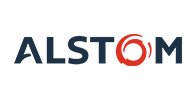
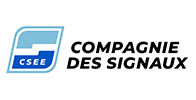
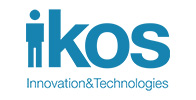
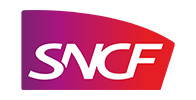
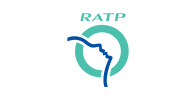
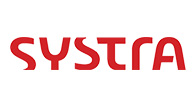
An association for expressing your interests
‘Guided Ways’, for railway enthusiasts: the association organises visits to sites, takes part in online tests and plans conferences in the guided-transport sector.
- Sciences
- Human sciences and Engineering culture
- Transport Engineering
- Vocational Internship I (4 weeks)
- Sciences
- Human sciences and Engineering culture
- Vocational Internship II (4 weeks)
- Sciences
- Human sciences and Engineering culture
- Transport Engineering
- Sciences
- Human sciences and Engineering culture
- Transport Engineering
- Trainee engineer Internship (4 month)
- Transport Engineering
- Engineer Internship (6 month)
Railway Syllabus - 1st Year
- Scientific Training
- Training in the Human Sciences
- Initiation Guided Transport, Initiation Automobile, Initiation Aeronautics and Space
Vocational Internship I (4 weeks).
• Logic
• Calculus in R and C
• Plane and spatial geometry
• Functions with one variable
• Sequences
• Polynomials
• Linear algebra
• Differential equations and systems
• Frames of reference
• Coordinate systems
• Trajectories and equations of movement
• Particle mechanics
• Link mapping and analysis
• Technologies and operation of actuators
• CAO(SOLIDWORKS)
• Systems of units and uniformity of equations
• Order of magnitude and error calculations
• Introduction to organic chemistry
• Reaction mechanisms (electronic, energy and kinetic aspects), Alkanes, alkenes, alkynes and hydrocarbons.
Railway Syllabus - 2nd Year
- Scientific Training
- Training in the Human Sciences
- Guided transport technologies
Vocational Internship II (4 weeks).
• Functions with several variables
• Vectoral analysis
• Power series and Fourier series
• Laplace transform and Fourier transform
• Conics
• Real-valued random variables
• Discrete and continuous usual laws
• Central limit theorem and approximations
• Introduction to object oriented programming
• Project in C++ language
• Advanced Excel
• Traction / compression / torsion / bending
• Strain and stress
• Mechanical behaviour
• Beam analysis and dimensioning
• Physical and mechanical properties
• Different types of materials
• Crystallography
• Study of combustion characteristics
• Free enthalpy
• Redox
• Single, alkali and hydrogen fuel cells
• MSystems modeling (equations and transfer functions)
• Elementary command loop
• Systems frequency studies
• Matlab application
• Periodic signals
• Functional approach (amplifiers and filters)
• Frequency responses
• Functional aspects of converters
• Inverters, converters and continuous current machines
• Propagation and superposition phenomena
• Maxwell equations
• Applications to acoustic waves and electromagnetic waves in a vacuum
Railway Syllabus - 3rd Year
- Scientific Training
- Engineering Culture
- Guided Transport
• Isostatism of a mechanism, analysis, determination and functional incidences
• Theory of contact between solids
• Dimensioning of guidance, assembly and power transmissions
• Introduction to fatigue
• Introduction to various modes of heat transfer
• Conduction (heat equation, stationary and variable regimes)
• Convection
• Radiation
• Analysis of periodic signals
• Signal energy and power
• Analogue digital conversion
• Introduction to digital fi ltering
• Fluid dynamics
• Dimensional analysis and similarity
• Boundary layer (laminar and turbulent)
• Power electronics
• Electromechanical conversion (energy effi ciency)
• Structure and principle of electric machines (synchronous and asynchronous)
• Application to electrical motors and converters
• Logic functions
• Combinatory and sequential circuits
• Introduction to information transmission
• Linear systems
• Interpolation, approximation and integration
• Ordinary differential equations (explicit and implicit methods)
• Partial differential equations (finite differences)
• Model complexity analysis
• Parameter analysis and dimensioning
• Programming, validation and optimization
• Presentation of UML
• UML static and dynamic diagrams
• Development of an application
• Group dynamics
• Formalization of the professional project
• Introduction to project management
• Functional and technical needs analysis (specs)
• Operation condition
• Application to product-process design
• Application to an innovative project
• Review of energy resources in the world and in France
• Macro- and micro-economic analysis of the dependency on raw materials
• Application to the transport of tomorrow
• Analysis of rail transport needs (European economy and policy) rail transport technologies (system, infrastructure, energy, signalling and rolling stock)
• Line tracing and obstacles
• Analysis of urban transport needs (economic, administrative and sociological aspect and traffic study)
• Choice and technological dimensioning of the method of transport (standards, energy, rolling stock and infrastructures)
• Electrical rail traction (power, traction chain and components)
• Combustion rail traction (energy, traction chain and components)
• Rolling stock layout and equipment (seats, lighting, information, heat comfort and accessibility)
Railway Syllabus - 4th Year
- Scientifics training
- Engineering Culture
- Guided Transport
Trainee engineer Internship (4 month).
• Variational formulation and meshing
• Structure discretization
• The various families of finite elements in structure calculation
• Calculation of elementary matrices, assembly and calculation of the solution to a static problem
• General hypotheses of continuum mechanics
• Theory of elasticity, viscoelasticity and thermoelasticity
• Introduction to damage, rupture and fatigue
• Elastic problem solving methods
• Introduction to dynamic and acoustic phenomena
• Theoretical and experimental modal analysis
• Linear acoustics, acoustic modes and acoustic impedance
• Mass and energy balances in open systems
• Conversion of thermochemical energy into heat energy
• Conversion of thermochemical energy into mechanical – electrical energy
• Architecture design of hydraulic systems
• Modelling of head loss
• Power dimensioning
• Introduction to networks and components
• Coupling of mechanical, electrical, thermal and hydraulic models
• Multi-physical modeling tools
• Basic concepts of software architectures
• Task scheduling
• Synchronization and inter-task communication
• Control of discrete-time systems
• Introduction to sequential systems
• Real-time prototyping
• Inverse model
• Modelling control of asynchronous and synchronous machines
• Introduction to quality
• Process model and control graph
• Certification and customer relations
• Statistical inference (sampling and estimation)
• Statistical process control
• Experimentation
• Introduction to industrial company organization and environment
• Production planning (flows, stock management, needs calculation)
• Introduction to lean management
• Social behaviour in the company
• Managing international projects
• Structuring a project into tasks and phases
• Business plan
• Formalization of the professional project
• The network
• Design and dimensioning of the railway
• Safety command and control
• Design and dimensioning of the energy supply
• French and German visions
• Tramway infrastructure
• Rail vehicle dynamic model
• Design and dimensioning of rolling devices
• Braking systems
• On-board IT systems
• Vehicle design
Railway Syllabus - 5th Year
- Specialisation – Guided Transport
Engineer Internship (6 month).
• Structure design and dimensioning
• Rolling stock equipment and layout
• Electric drive chain components
• Mechanical and hydraulic transmission components
• Aerodynamics and acoustics
• Calls for tender (analysis and bids)





